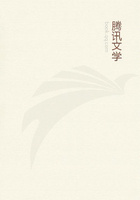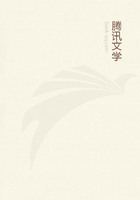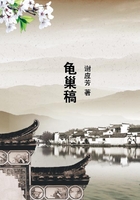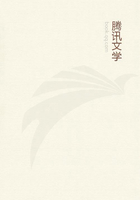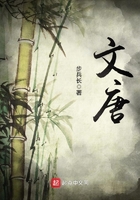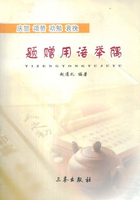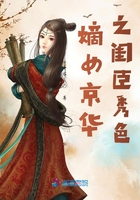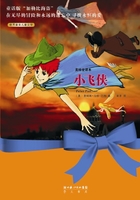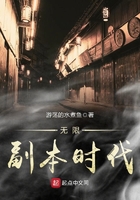Keeping in mind the facts just mentioned, we shall have no difficulty in explaining the Concourse of knights and men of the sword in the grand duchy of Moscovy. The territorial extension of the duchy had necessitated the abolition of a great number of small principalities, and persons formerly belonging to the ruling dynasties and united by ties of blood to the Tzar, were anxious to enter his service. In this manner the knightly class began to number in its ranks a whole group of princely families who were the descendants of those potentates whose dominions had been conquered and annexed by Moscow. Before long the number of persons desirous of taking service under the Grand Duke totally excluded the possibility of personal and separate conventions, such as those which settled the mutual rights and duties of prince and knight in the other principalities of Russia. These personal agreements were superseded by a general enactment, which declared that the man of service occupied a higher or lower rank in the political hierarchy according, first, to the dignity of the family to which he belonged, and, secondly, to the number of years his family had been engaged in the Moscovite service.
It was generally acknowledged that a princely family -- that is, a family that had once belonged to the number of ruling dynasties, ought to have precedence over all others among untitled nobles. Whoever could show among his ancestors persons in a high official post had the right to refuse any inferior situation, especially in those cases in which a person of a comparatively new family was to be set over him as his superior.
This order of precedence was more than once set aside in consequence of the low condition to which this or that wealthy family had been reduced by the loss of its estates. A Russian noble in a miserable state of poverty was as little entitled to occupy a high official position, as was a penniless English duke, or earl, to take his seat in the House of Lords in the fifteenth century, in the reign of Edward IV.
The rules of precedence, constituting what our ancestors of the fifteenth and sixteenth centuries called "mestnichestro,"were scrupulously observed both in the army and in the civil service. They also found expression in the constitution of the Council or Douma. The titled nobility, the princely families, as a rule, occupied the highest rank in the hierarchy of the councillors, the rank of "doumn iboyars," or boyars of the Council.
A certain number of the old Moscovite nobility were allowed to retain their original rank, but the rest of the nobles were by degrees lowered to that of persons whose only distinction was to be "the children of ancient boyars." The documents of the time speak of them in precisely these terms, calling them "boiarski dieti," children of the boyars.
The second rank among the members of the Douma was occupied by those known under the name of "ocolnichii," or persons living immediately about the Duke. This rank in the Douma belonged, as a rule, to members of the old Moscovite nobility, as well as to some of the smaller princely families. The Duke had the right to confer on his "ocolnichy" the higher title of boyar as a recompense for his services. The rest of the knightly class were either entirely unconnected with the Council or were simply summoned to be present at some of its sittings. They were known under the general name of "noblemen belonging to the Douma,""dumnii dvoriani," and formed the third rank of Councillors.
The fourth or lowest rank in the Council was composed of those members of the knightly class who condescended to hold second-rate posts in the different executive bodies of the duchy, such as the Foreign Office ("Posolsky prikaz"), or the board presiding over temporary or life grants of land (Pomesini prikaz). These second-rate bureaucrats, known under the name of secretaries, diaki, were regularly admitted to the sittings of the Council, where they formed the lowest but by no means the least influential order.
From what has been said it will be seen that autocratic power in Russia had to deal with certain counterpoises and moderating influences in the political constitution of the country even after the fall of the ancient folkmotes. These checks and restraints had their roots in the old political rights exercised by the chiefs of the almost independent principalities which constituted the unorganised federacy of Russian states. Whilst submitting to the power of the Moscovite prince, these once independent chiefs insisted on the recognition of their privilege to be next after the Tzar, the principal ruler of the country.
The so-called mestnichestvo was, therefore, a sort of unwritten constitution, recognising in each of the members of the higher nobility his distinct right to a place in the machinery of the State. The lover classes alone had no part in the conduct of public affairs. An end was put to this anomalous situation by the convocation of the States-General. The origin of these States-General, or Sobors, and their further development, will form the subject of our next lecture.
NOTES:
1. Herbord, ii. 15-30.
2. "Complete Collection of Russian Chronicles," vi. 213.
3. Compare Diakonov, "The Supreme Power of the Moscovite Tsars,"Petersburg, 1889.
4. This subject has been very ably discussed by Professor Kluchovsky.
Modern Customs and Ancient Laws of Russia by Maxime Kovalevsky 1891

